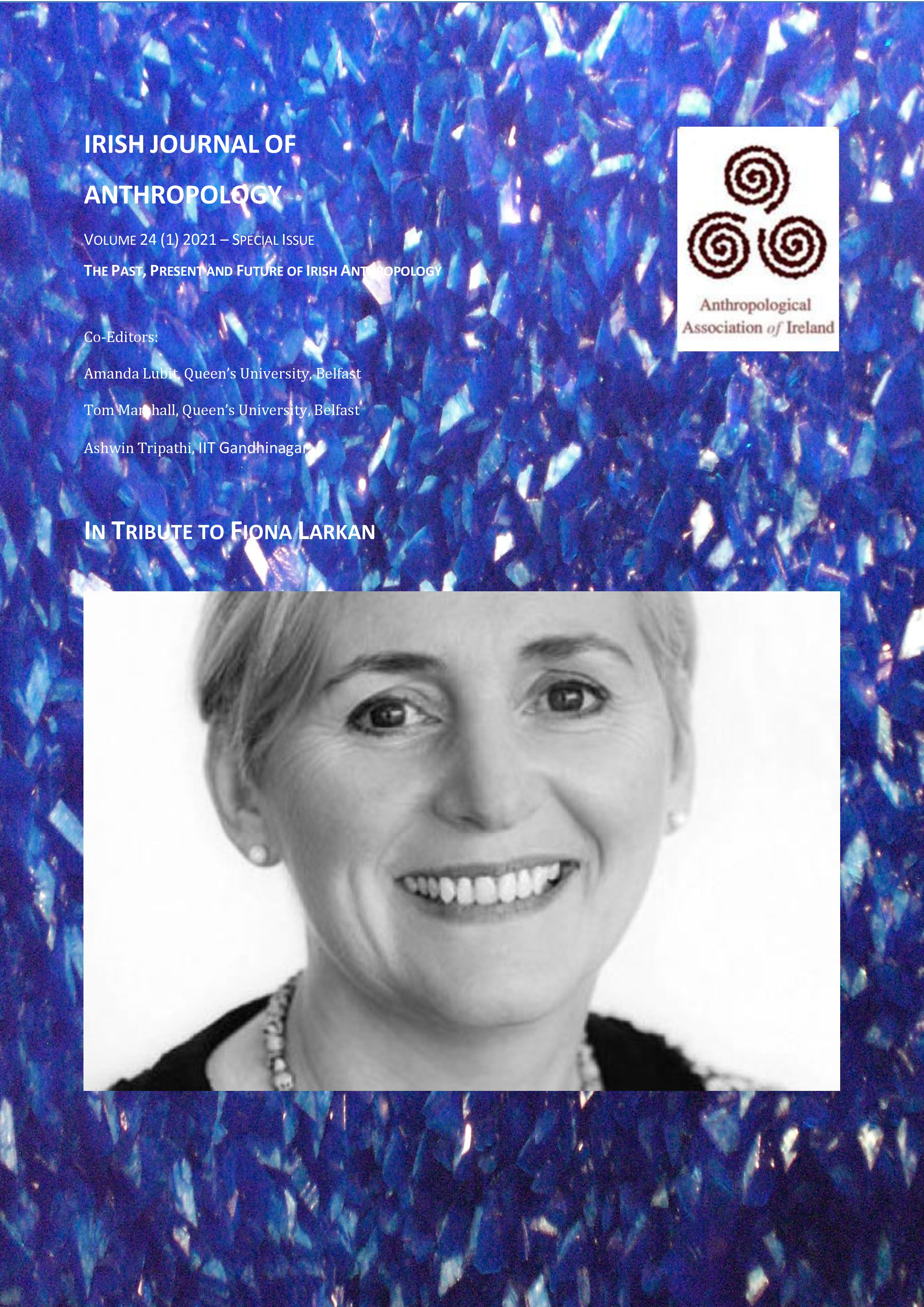Writing Ireland
An Anthropological Literature Review
Keywords:
literature review, anthropological theory, Republic of Ireland, Northern Ireland, EuropeAbstract
This literature review situates key works in the anthropology of Ireland within broader directions in Europeanist anthropology by examining various theoretical approaches used in the decades between 1930-2020. Many early publications on the Republic of Ireland fit neatly into wider anthropological trends. Functionalism was an important theoretical paradigm in both the anthropology of Ireland and Europe during the 1930s and 1940s. Throughout the 1950-1970 period, much of the ethnographic writing about Ireland emphasized the idea that rural communities were dysfunctional and dying, a process called “anomie.” This approach was strongly critiqued later, when ethnographers began to focus on processes of social continuity and change. In contrast, the anthropology of Northern Ireland has generally been centred on “The Troubles” or sectarian conflict between Catholics and Protestants. Two of the earliest monographs analysed how practices of both conflict and conflict-avoidance shaped the lives of rural villagers in Northern Ireland. Later works specifically examined the experiences of paramilitary members and their support communities. By the 2000s-2020s, there was a focus on how Irish Catholic and British Protestant ethnoreligious identities are created, maintained or contested in a post-conflict society.




